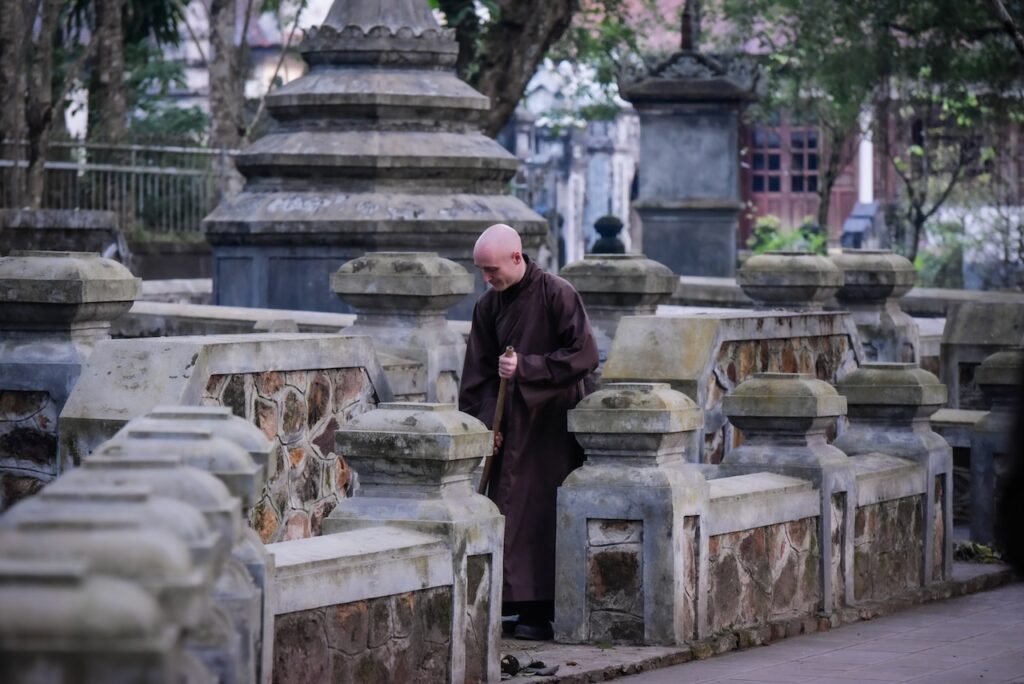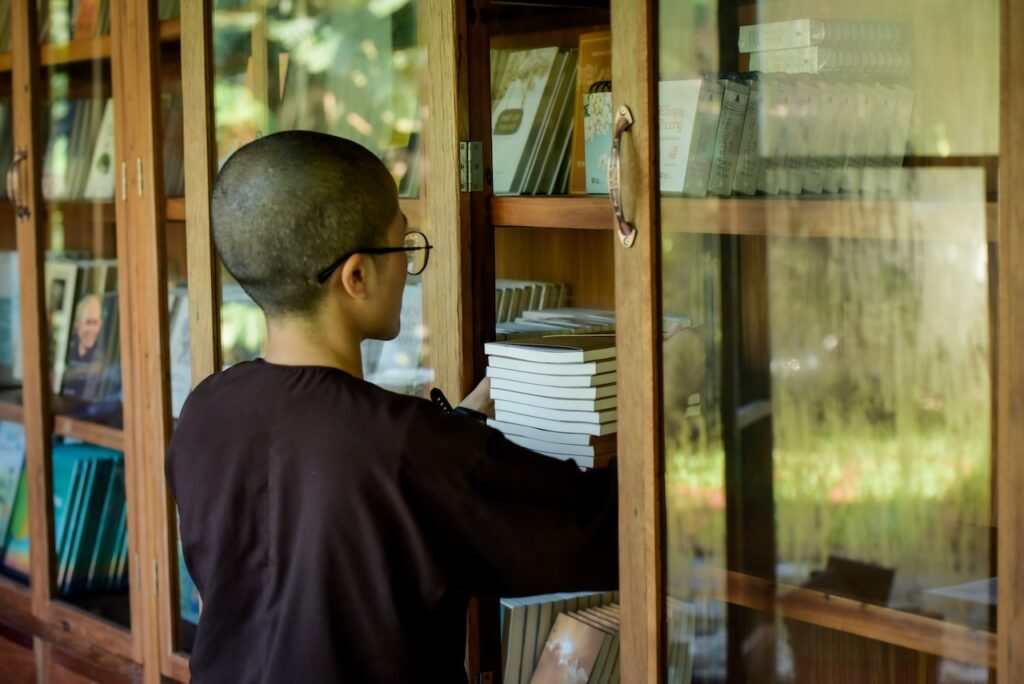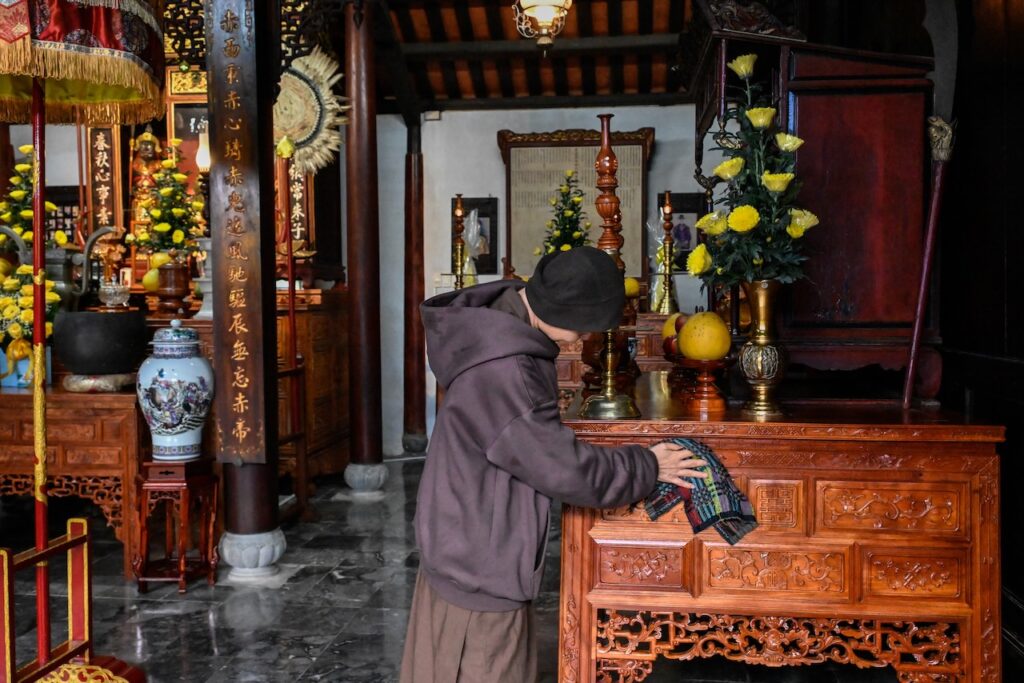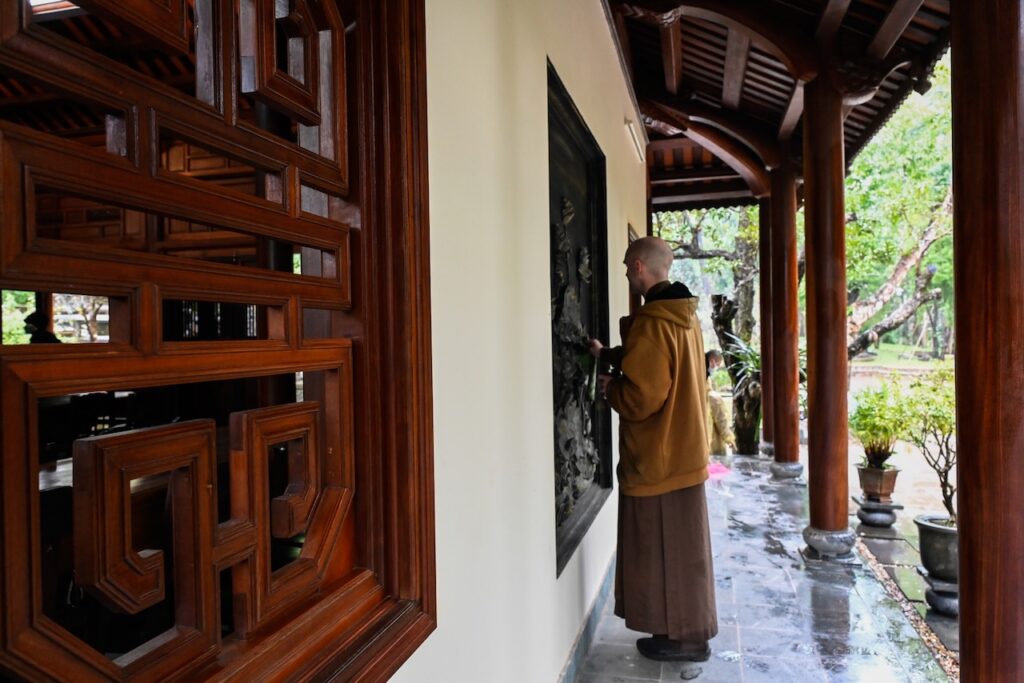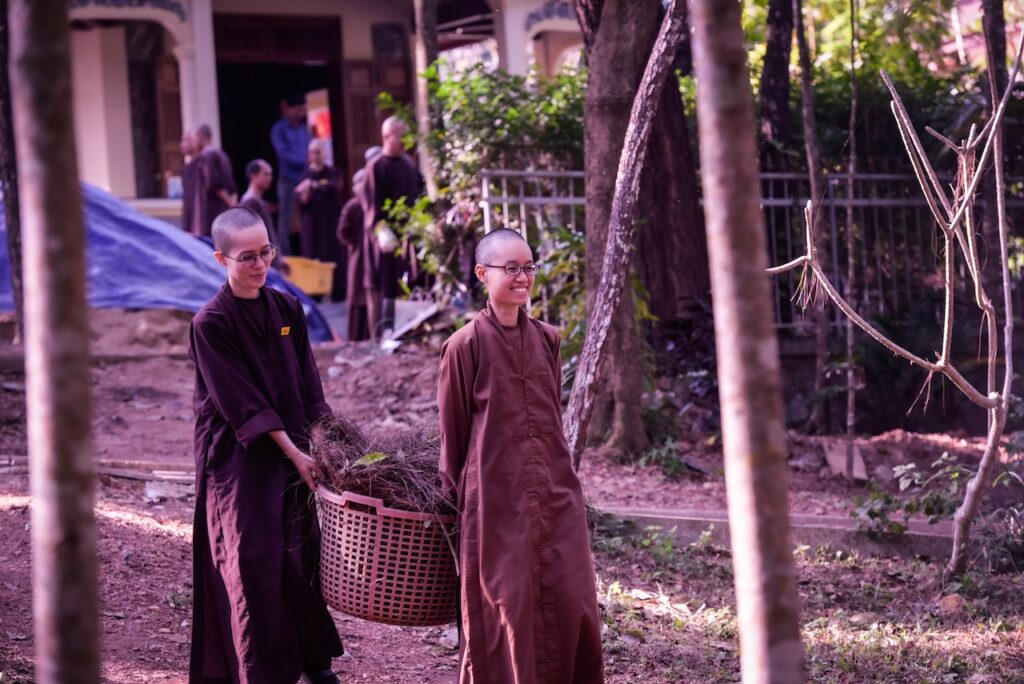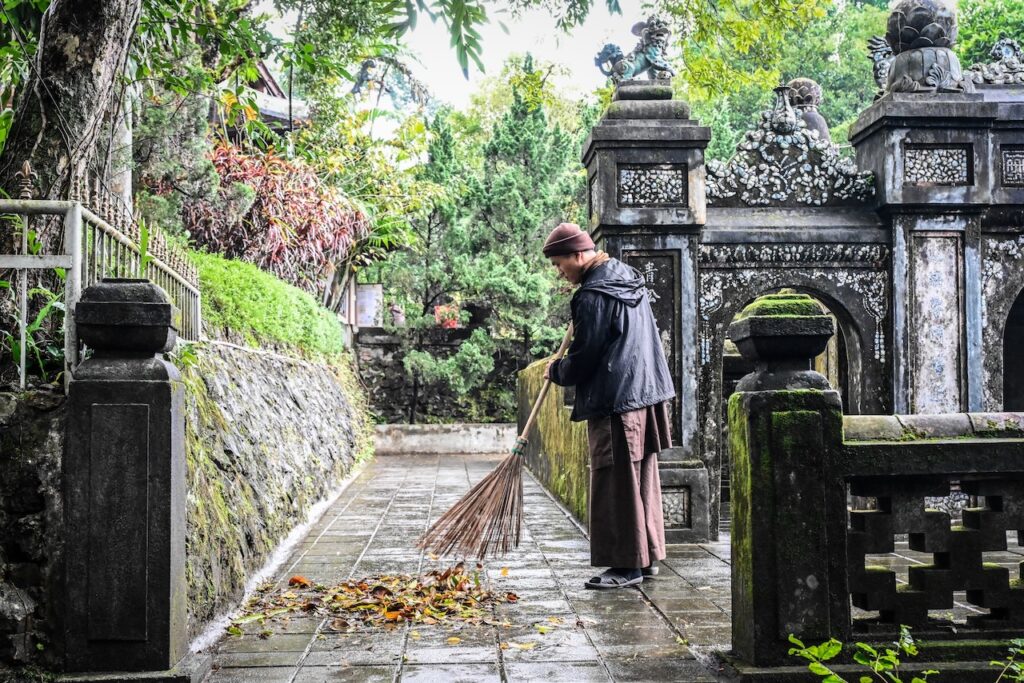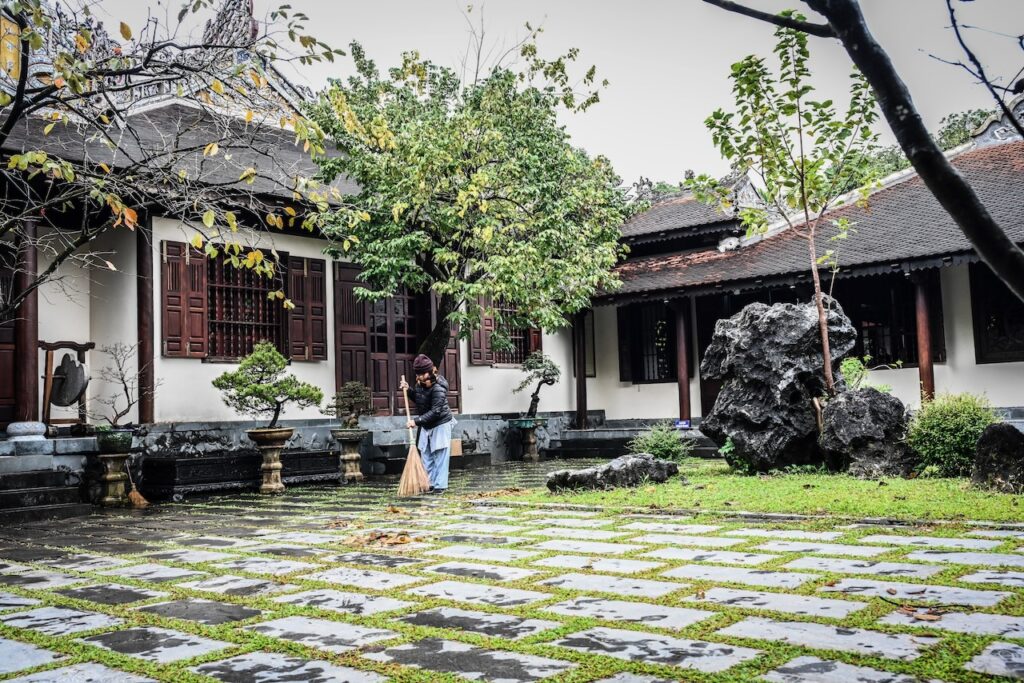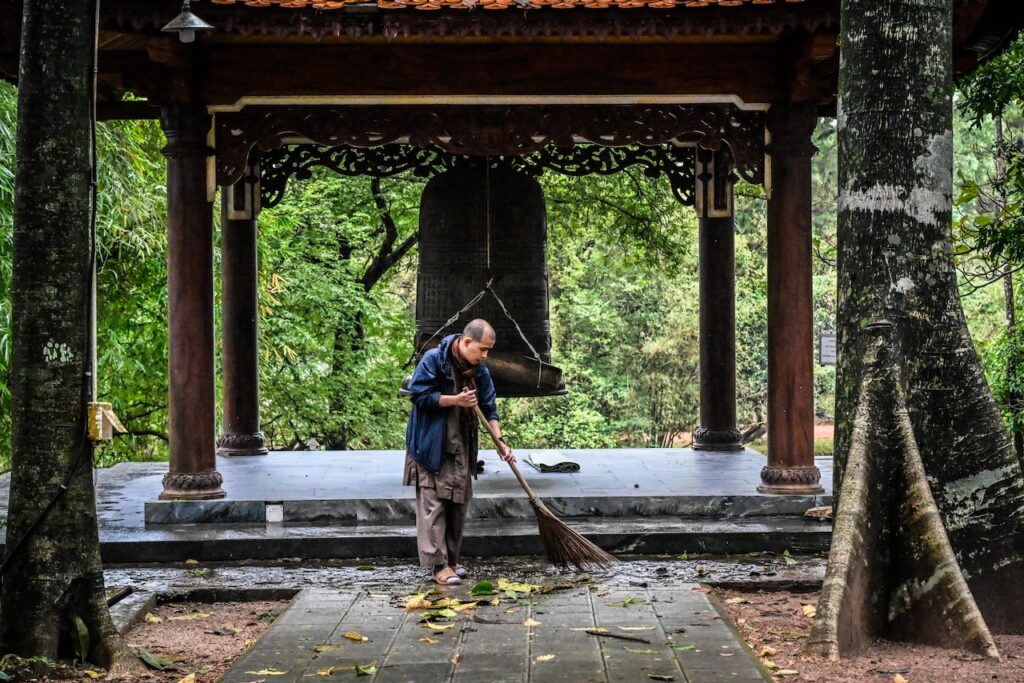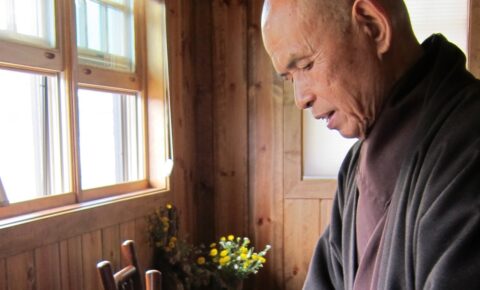When an aspirant first entered the monastery, they were not allowed to study the teachings right away but had to go through manual work for a long time. They had to see that the business of their daily chores was the first task of practicing Zen.
Sung examined his actions, language, and thoughts while he was walking, standing, sitting, or lying down. Every time he moved his body, he allowed a wholesome thought to arise in his mind in order that his movement would be right action. For example, when he first woke up in the morning he let the thought arise: “I pray that all beings will have enough wisdom and awakening to see deeply what’s going on in the ten directions.”
He was very moved when he recited those verses, feeling that both mindfulness and compassion were being nourished in him. When he put on his clothes, fastened buttons, tied strings, washed his hands and feet, washed his bowls, swept the ground, went to the bathroom — in other words, no matter what he did — there was a beautiful thought that went along with the action.
Many aspirants loved to sweep the floor thanks to the gatha: “Sweeping the ground of the monastery diligently makes happiness and understanding arise.” It means that diligently sweeping the temple grounds can help you develop our merits, virtue, and wisdom.
[Excerpt from “My Master’s Robe“]
